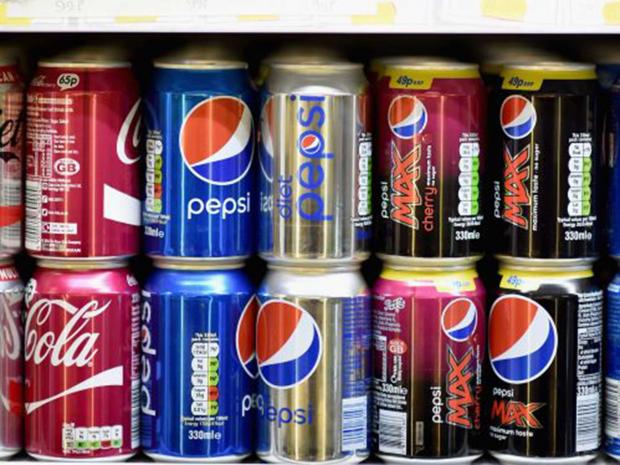-
Tips for becoming a good boxer - November 6, 2020
-
7 expert tips for making your hens night a memorable one - November 6, 2020
-
5 reasons to host your Christmas party on a cruise boat - November 6, 2020
-
What to do when you’re charged with a crime - November 6, 2020
-
Should you get one or multiple dogs? Here’s all you need to know - November 3, 2020
-
A Guide: How to Build Your Very Own Magic Mirror - February 14, 2019
-
Our Top Inspirational Baseball Stars - November 24, 2018
-
Five Tech Tools That Will Help You Turn Your Blog into a Business - November 24, 2018
-
How to Indulge on Vacation without Expanding Your Waist - November 9, 2018
-
5 Strategies for Businesses to Appeal to Today’s Increasingly Mobile-Crazed Customers - November 9, 2018
Childhood obesity: Experts attack ‘weak’ and ‘watered-down’ strategy
The UK government has announced its plans for tackling obesity in children, but has come under criticism for not going far enough.
Advertisement
Britain yesterday launched a strategy aimed at curbing childhood obesity by taxing companies which sell sugar-laced soft drinks and investing that money in programmes to encourage physical activity and balanced diets for school children.
Ministers hope the food industry will cut 20% of sugar from the foods children enjoy, such as cereals, yoghurts, sweets, breads and desserts, over the next five years, with a 5% cut in the first year.
It said: “We agree with the government that obesity rates are too high, but we do not believe a tax on only some soft drinks with sugar will reduce them”.
The plan also specifies that “every primary school child should get at least 60 minutes of moderate to vigorous physical activity a day”. Professor Parveen Kumar, BMA board of science chair, said: “Given the United Kingdom has the highest level of obesity in Western Europe with one in three children overweight or obese by the time they leave primary school, the government should be doing everything in its power to tackle this problem”.
But Oliver said the announcement was “far from robust” and failed to tackle junk food advertisements targeted at children.
But Malcolm Clark, for the Children’s Food Campaign, said: “This is a truly shocking abdication of the Government’s duties to secure the health and future of the next generation”. “A policy focused on a single nutrient in narrow range of products – that provide an average of just 5 per cent of the total calories in a British teenager’s diet – is not the right response”.
“It’s such a shame we can’t lead the way in tackling obesity and type two diabetes as well, which we had the flawless opportunity to do with the release of this strategy…”
In addition to the new sugar guidelines, a new “healthy schools rating scheme” will be introduced to assess what schools are doing to make their pupils more physically active during Ofsted inspections.
The Department of Heath will also collaborate with Public Health England, NHS England, and the Behavioural Insights Team to trial behavioural interventions in NHS hospitals are the sale of unhealthy food and drink.
If the industry fails to implement the changes voluntarily, the Government will consider “whether alternative levers need to be used”.
He said: “This stark difference is so significant and for me, this is a strategy of inaction, not action”.
Commenting on the government’s obesity plan, Ian Wright, director general of the Food and Drink Federation said: “Food and drink manufacturers recognise our responsibility in meeting the challenges posed by obesity”.
The Government should think again before imposing a harmful new burden on a vital and growing industry, not least at a time when other pressures on the sector – from employment, property, bureaucratic and other costs – are being exacerbated by uncertainties arising from post-Brexit economic and commercial uncertainties.
The Royal Society for Public Health argued that the plan falls short of what was needed, despite welcoming a number of its elements.
CFC co-ordinator Malcolm Clark added: “This was the government’s chance to show that the United Kingdom is a world leader – not just on the Olympic medal table, but in tackling obesity, type II diabetes, dental decay and other forms of diet-related ill-health”.
‘Councils are doing everything they can to curb obesity at a local level and will have spent more than half a billion pounds tackling obesity since they took over responsibility for public health three years ago.
Advertisement
Drinks with 5g of sugar per 100ml will face a lower rate of tax while those with more than 8g per 100ml will face a higher rate.





























